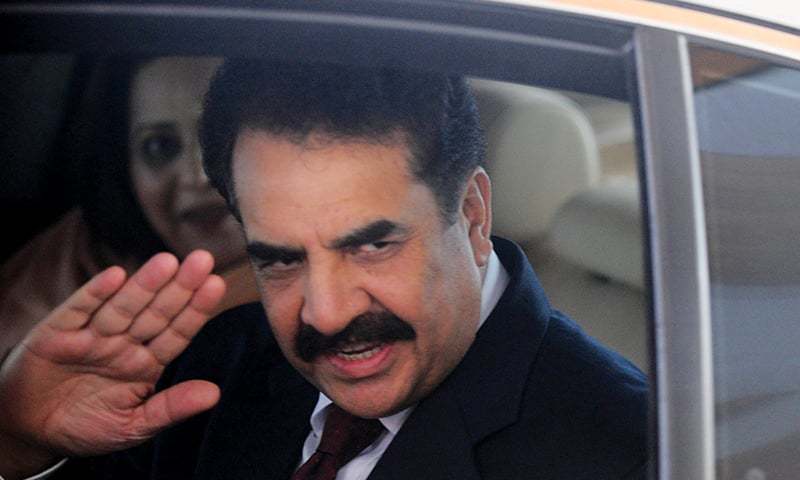Despite political distractions domestically, Pakistan government is pro-actively pursuing its foreign policy goals in the region as it works hard to positioning itself as an intermediary between Iran and Saudi Arabia.
Currently, the Speaker National Assembly, Ayaz Sadiq, is leading an official parliamentary delegation to Tehran to discuss regional issues and bilateral relations. The visit is part of a larger diplomatic initiative taken by Pakistan to stress the importance of close relations with Iran; despite Pakistan joining the Saudi-led military alliance.
The Speaker encouraged Iran to join the China-Pakistan Economic Corridor, emphasizing, it would open up new possibilities and closer ties for both states. “Iran’s cooperation in fighting terrorism is essential and the role of mutual cooperation in establishing peace and security in the region is undeniable” said the Speaker while meeting with Iranian Foreign Minister Mohammad Javad Zarif in Tehran on Sunday.
Read more: Iran’s Strategic Move: Reveals its “Reservations” over the “Islamic Military Alliance”; What Next?
Press reports also indicate that the Attorney General, Ashtar Ausaf, has also been tasked by the Prime Minister to help bring about cordial relations between Saudi Arabia and Iran. He is said to have recently traveled to Riyadh to hold meetings with key officials including the Crown Prince and is scheduled to visit Tehran as well.
Pakistan has taken a strong proactive position to engage Iran, over the issue of the military coalition and Gen. Raheel Sharif leading it. This became especially important after comments by the Iranian Ambassador to Pakistan, Mehdi Honardost, earlier this month when he emphatically stated that Iran was not happy with the Islamic Coalition. Pakistani civil and military leadership has met with senior officials from Iran including COAS General Qamar Bajwa who has had two meetings with the Ambassador Mehdi Honardost, in the last six weeks, to reassure him of the importance that Pakistan holds of good bilateral relations with Iran.
Read more: Saudi Arabia & Iran: A potential nuclear race in the making?
Stressed Relations between Iran & Saudi Arabia
Relations between the two countries, Iran and Saudi Arabia, have never been good, but the past couple of years, to put it mildly, they have been rockier than usual. In January 2016, Saudi Arabia executed a prominent Shiite cleric Nimr al-Nimr which sparked massive protests in Tehran and led to the ransacking of the Saudi embassy. Saudi Arabia cut diplomatic ties with Iran following this incident. In September 2016, Iran banned its citizens from performing Hajj and blamed the Saudi government for the 2015 stampede in which several hundred Iranians were killed. The two nations have also been at loggerheads over proxy disputes in Yemen and Syria. Saudi’s have also been vocal in expressing their disappointment over the Iranian 2015 nuclear deal – Joint Comprehensive Plan of Action deal- with the United States. Only recently, February in the Munich Security conference, Saudi Foreign Minister Adel Al-Jubeirhas called Iran the biggest state sponsor of terrorism in the world.
Mending ties between these historic rivals is a daunting task, but Pakistani civil and military establishment are keen on striking a compromise between them and fostering unity to whatever extent possible in the Muslim world. Ex-COAS Gen. (retd) Raheel Sharif, when nominated to head the Saudi alliance, accepted on the condition that Iran, Iraq and Syria will be invited as well. Reports indicate that Pakistan explicitly warned Saudi Arabia that it would pull out of the alliance if it turned out to have a sectarian agenda. Last Friday, General Raheel Sharif, was finally issued an NOC from the Government of Pakistan and traveled to Saudi Arabia on a private airplane sent for him from the kingdom.
Read more: Pakistan Army engagement in Middle East: Walking a fine line between.Saudi Arabia & Iran..
Given the ties Pakistan has with the GCC countries, the majority of its working labor and diaspora are based there as well as over 70 percent of remittances come from GCC countries. Pakistan cannot afford to antagonize either country and has a difficult balancing act to pursue. The government’s decision to approve the appointment of General Sharif as head of Islamic military coalition has been very controversial since the idea was first flouted several months ago. All those against the idea are worried about the sectarian dimensions and implications of this decision for a country which has a 10-15% of Shia population. Pakistan has always struggled but has so far managed to maintain a neutrality between Iran and its Arab allies.
While it is not clear to what extent Pakistan will be able to strengthen the relationship between Saudi Arabia and Iran it certainly should work on keeping its own with Iran on a positive footing. Trade ties are extremely important in any relationship and while the speaker mentioned CPEC he did not mention the Iran Pakistan pipeline. President Rouhani once again expressed his desire to the Speaker that Pakistan needs to complete its end of the pipeline as promised. Commerce minister Khurram Dastighir has many times talked about this project’s completion but the country is not much closer to when the idea was first initiated under Zardari. The shortage of energy in the country also makes this a critical need for Pakistan and should be fast tracked.














